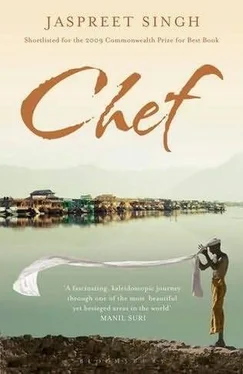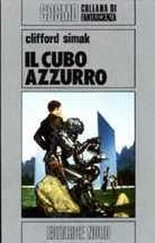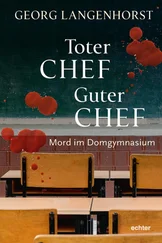Forgiveness is a strange animal, I say to myself. Not many people on this earth know how to ask for forgiveness, and very few know how to truly forgive. I returned to the hospital to ask for forgiveness. I did not really need a bandage, the cut I had on my finger was minor. Some of the wards were absolutely dark. One or two were lit up with emergency lights. There was no power in the hospital, and the whole place smelled of dead cockroaches and chloroform. I waved at her. She ignored me; the sound of her heels clicking throughout the ward was unbearable.
Finally, I stopped her in the corridor.
‘Nurse, I have been meaning to say “sorry” to you.’
‘Say it quickly.’
‘I was wrong. The way I used to look at you was wrong. It will never happen again.’
She held my arm and I felt she had already forgiven me. I like you a lot, she said, and immediately after saying that she entered the dimly lit ward. The guard saluted her. I lingered until she took a cigarette break and stepped out on the lawn. Only then, when she was gone (and the guard was looking in the other direction), did I step into the ward.
There was a blanket on his face. The only light came from the window in the corner. The blanket heaved up and down. Chef stirred, but did not flap it open. This made my task easier. In a low voice I apologized on two counts. First, for reading his journal, and second, for liking his woman. Nothing happened between us, Chef. I just told her that I liked her. I did nothing.
I do not recall exactly the words I used, but I apologized and placed the red journal by his pillow and quickly made it to the door. The guard looked at me suspiciously, but didn’t utter a word.
Outside in the corridor a man was tapping the floor with his crutches. A thin boy from the Madras regiment in a wheelchair was playing with his saliva, slowly shaking his head left to right and right to left like a machine. The nurse was standing with two or three other nurses. They eyed me curiously.
‘I was only trying to have a word with Chef,’ I explained.
‘Who?’ she asked.
‘Kishen.’
‘But he is not here,’ she said.
‘Not here?’
‘Gone.’
‘He left?’
‘He put in a request with the colonel for a return to the Rose Glacier.’
‘Why did they let him go?’
‘Because no one else wanted to go.’
‘So who is on the bed?’ I raised my voice.
I rarely raise my voice. Perhaps that is why the power returned in the hospital.
There was a commotion in the corridor. Officers are coming. Officers. There I saw the colonel and his platoon marching in. The doctor was walking parallel to the colonel in his trussed jacket. The colonel was carrying an inspection stick, and the doctor was smoking a Marlboro.
‘Power is very unreliable, sir,’ said the doctor to the colonel. The others followed them to the ward. The officers took a long time inside and ordered tea and pakoras.
Half an hour later the hospital orderly stepped out of the ward with an empty tray.
‘Major, what tamasha is happening inside?’ I asked him.
‘We really live in a foreign land, Major. They are dealing with an enemy.’
‘An enemy?’ I asked.
‘Yes, Major. They need an interpreter inside, and no one knows Kashmiri here.’
‘I do.’
I knocked on the door.
‘Permission to enter, sir?’
‘Kip… Kirpal?’
‘If you do not mind, sir, I know the language. I took lessons, sir.’
‘Shahbash,’ said the colonel.
He beckoned me inside.
The officers, in proper uniforms and black boots, looked at me in relief as if I had just saved them. The captive lay on the bed. He was a she. The first enemy I ever saw was a she, and already I had apologized to her moments ago on two counts. The first thing I noticed was the unconscious movement of her head. Rapid breathing. Terror in eyes. Peasant feet. The toe ring gleamed in flourescent light. There was a cut on the left foot.
The colonel asked me to occupy the chair next to the enemy’s bed. I took a deep breath, then the interrogation began. It was my first time as an interpreter. I asked the questions slowly, she stammered her responses. I do not recall the many unintelligible things she brought to her lips. But the essence has stayed with me.
Name?
Nav?
Irem.
Father’s name?
Moul sund nav?
Maqbool Butt.
Citizenship?
Shehriyat?
Kashmiri.
Colonel: Ask again.
Citizenship?
Shehriyat?
Kashmiri.
Married?
Khander karith?
Awaa.
Yes.
Husband’s name?
Khandaraas nav?
Raza Nomani.
Any issues?
Kahn mushkil?
Khandras manz ché mushkilat aasani…
She says, sir, all marriages have problems.
No, what we mean is, does she have children?
Bacchi chhoi kanh?
Na.
No issues, sir.
There was a pause.
Mrs Irem, why are you in India?
Irem, tsé kyazi koruth border cross?
Khooda yi chhum guanha sazaa.
She says, God is punishing her for sins.
The enemy woman started breathing more heavily. The colonel muttered something. She was gasping for breath. The nurse offered her a glass of water. But.
The woman fainted.
The doctor held her wrist for a few seconds, then let it go.
In that entire ward (especially on her bed) my eyes could not locate Chef’s red journal. Small insects were climbing up the wall by her bed. I anticipated a trial, a long court martial, at least an inquiry. Empty-handed I returned to the General’s kitchen, and my spine shivered with panic when the ADC phoned me:
‘General Sahib would like to see you, Kirpal. Report right before golf. Fifteen-thirty hours.’
With great anxiety I walked to the golf course. I had committed a serious crime. But the General looked in a beautiful mood. He was dressed in civilian clothes. He asked other officers to leave us alone. He was holding an expensive golf stick, and he picked up a white ball.
‘You see this, Kirpal.’
‘Golf ball, sir?’
‘Good.’
‘Sir.’
‘You see the dimples, Kirpal?’
‘See them, sir.’
‘Why is the ball dimpled?’
‘No idea, sir.’
‘Guess?’
‘To make it go slower, sir?’
‘Faster.’
‘Sir is joking.’
‘I do not joke, Kip.’
‘Sir.’
‘Colonel Sahib phoned me. He reported this morning’s proceedings at the hospital.’
‘Sir.’
‘Good job.’
‘Thankyousir.’
‘Now is your chance to pick up your second rank, and maybe a medal.’
‘Sir.’
‘Understand me?’
‘Not exactly, sir.’
‘Find out everything about that enemy woman.’
‘How, sir?’
‘You are a smart chap.’
‘It is an unusual assignment, sir.’
‘Delicate assignment, Kirpal.’
‘Certainly, sir.’
‘Certainly.’
‘Sir, if I may, when will I go to the glacier?’
‘Things are shaping up. I’ll look into this personally. And, Kip -’
‘Sir?’
‘Everything must remain confidential.’
‘Sir.’
‘What did we talk about?’
‘Balls, sir.’
‘Dismiss.’
He narrowed his eyes and hit the ball with his club and I clicked my heels. On the way to my room I thought about all the balls that get lost from the golf course. How many lost golf balls belonged to the army? I wondered. If dimples allowed the balls to go faster, was there a way to make them go slower? Suddenly I started thinking about fast and slow. Fast and slow in cooking. Fast and slow in the kitchen. This is exactly what we were trying to do in the kitchen.
Men in the barracks already knew more about her than I did. She had crossed the river from the enemy side to our camp. One version said she was a suicide bomber, and that her target was schoolchildren. Another version was that she worked for ISI, the enemy spy agency. A third version claimed that she had come to incite the youth of Kashmir to become militants.
Читать дальше
Конец ознакомительного отрывка
Купить книгу












